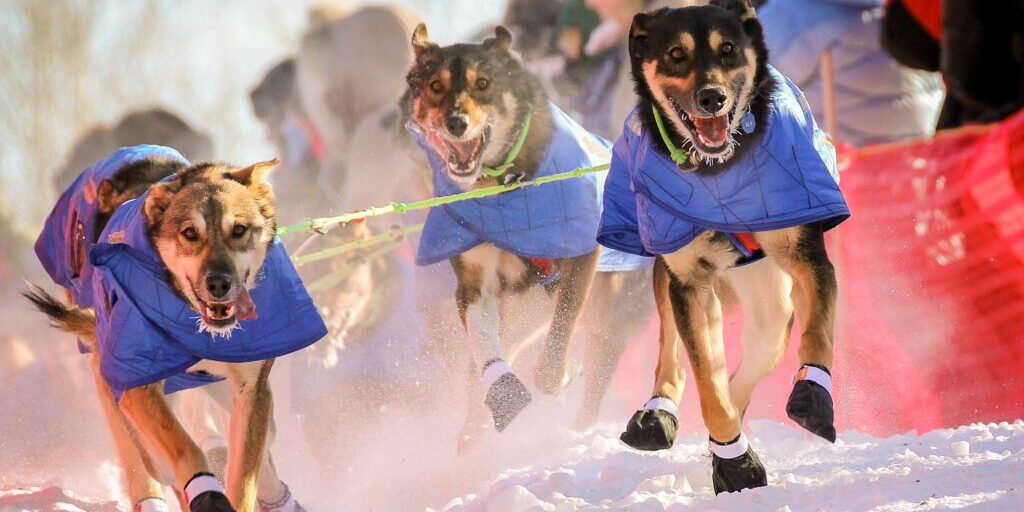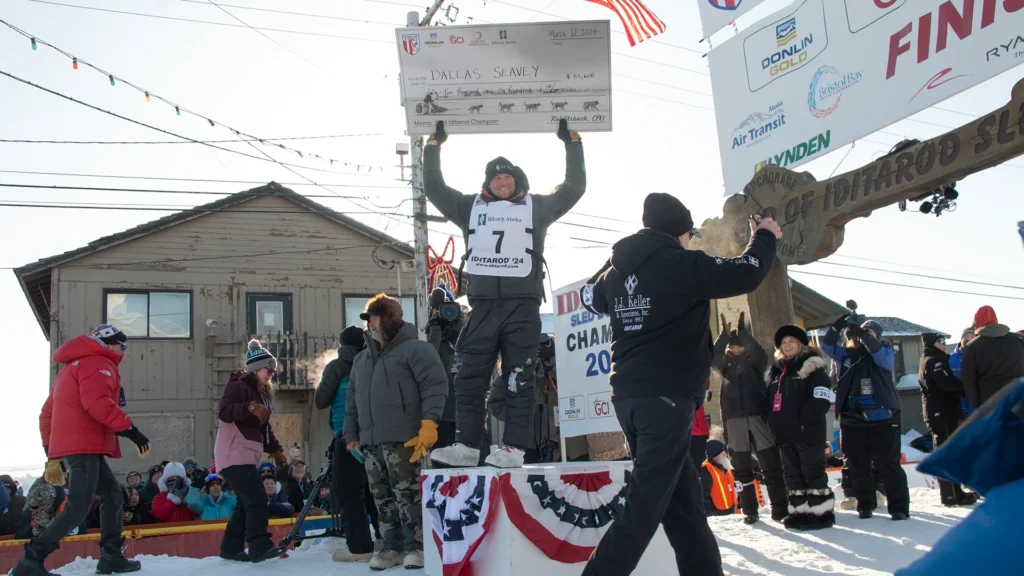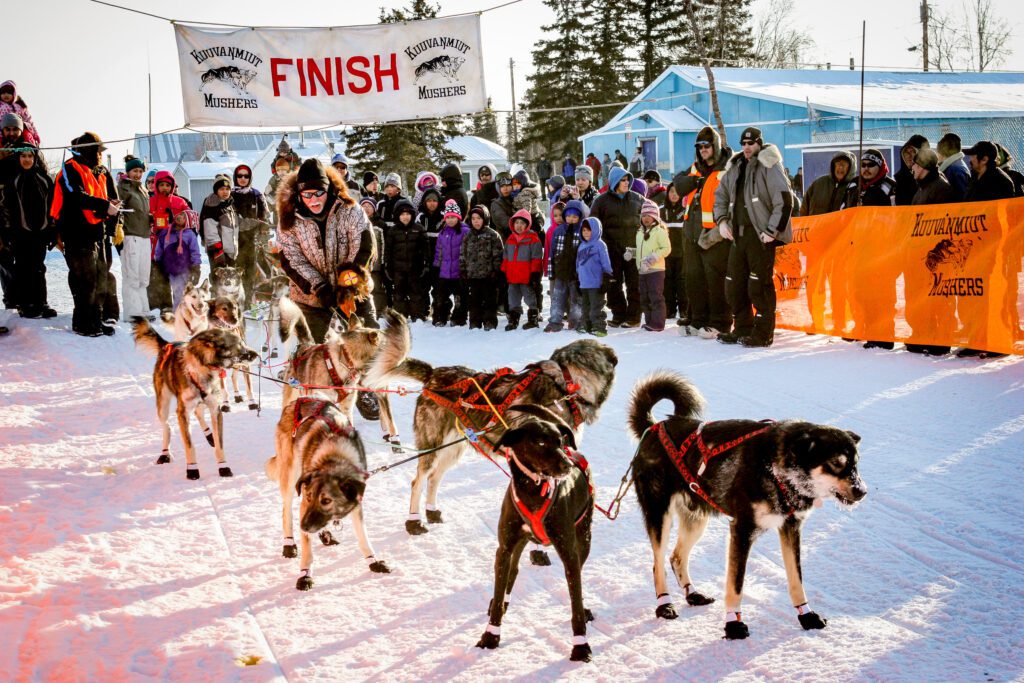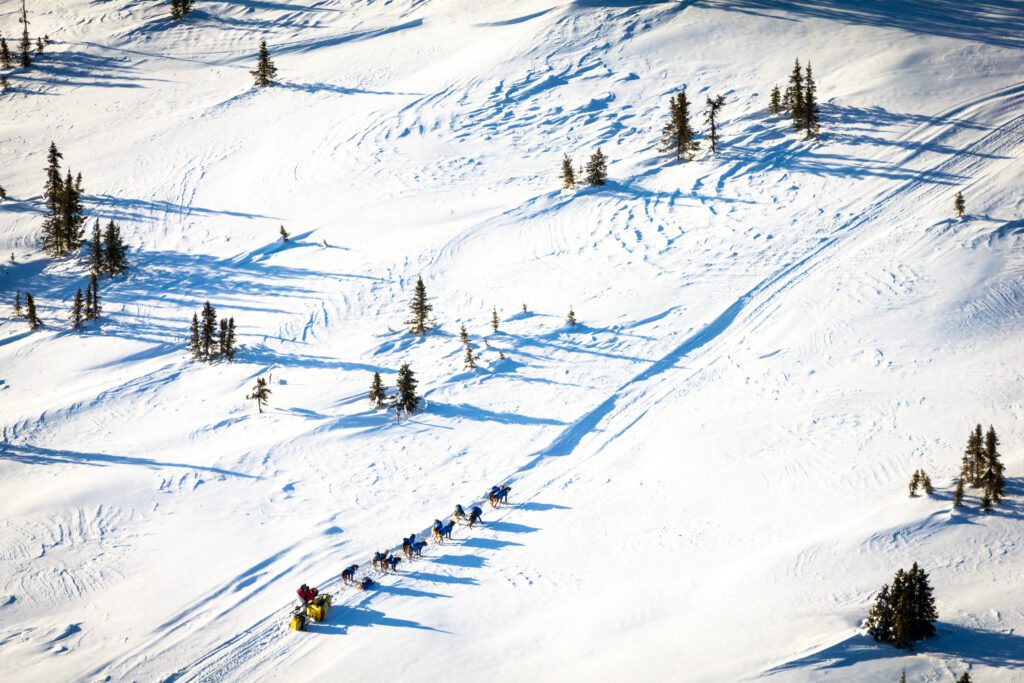During the first night of this year’s Iditarod, teams endured frigid temperatures on the Tanana River to reach the second checkpoint of Manley Hot Springs. As KNOM’s Ben Matheson reports, teams are adjusting to the deep cold and preparing to push to the Yukon River, where the race will unfold.
Nicolas Petit drove far into the night before pausing to rest. In Tuesday’s bright afternoon sun, Petit says the long, early run on the way to Manley behind past champions Martin Buser and Mitch Seavey is all part of the plan.
“If they’re not tired enough to not run 100 mph, they’ll get frostbit. There is a reason for my madness.”
Other mushers cruised through Manley, choosing to camp further up the trail. Petit says the trail was hard and fast out of Nenana, meaning he needs to watch his speed at this early stage in the race:
“They’re good enough so I can tell them which speed to go, and they’ll just go that speed; I can ask them to go 7.5 miles per hour. If I ask them to go 12, they will do that. But we don’t have to do that, quite yet. And then, we can go 14 miles per hour on the way to Nome.”
Veteran Rick Casillo swapped out dog coats for a different style to keep the males from getting frostbitten. He was breaking up his runs into 5-hour stretches to manage the cold and keep his string of 16 dogs intact.
“I think it’s going to be a cold one tonight. I think we’ve got one more day of this crap.”
The forecast calls for milder temperatures after Wednesday.
A few parking areas away from Petit, the winner in the last three years, Dallas Seavey, was feeding an extra snack before he left the warm sun of Manley Hot Springs. Because dogs burn extra calories in the deep cold, Seavey wanted to load up before the next big run:
“A couple of these guys are really good about eating snacks on the trail regardless of temp, other dogs don’t like cold meat so much. I think I saw 47 below this morning, was the coldest I saw.”
Seavey was multitasking, working his way up and down his team, fitting booties and cooking the meal. He’s focused on the details that add up of a 1000-mile race:
“One of those mushers’ dogs may have gotten 20% more sleep during that time because they were a little more efficient. In my opinion, if dogs are not running, eating or sleeping, it’s wasted time, albeit often times necessary wasted time, like putting booties on.”
Seavey left in the midday sun with only 11 dogs strung out in front, but he had five stowed in his new carbon fiber and Kevlar sled.
Several past champions left in quick succession Tuesday afternoon: Martin Buser first, followed by Jeff King, Mitch Seavey, and Dallas Seavey. The trail takes them to Tanana to meet the Yukon River, where the real racing can begin.







